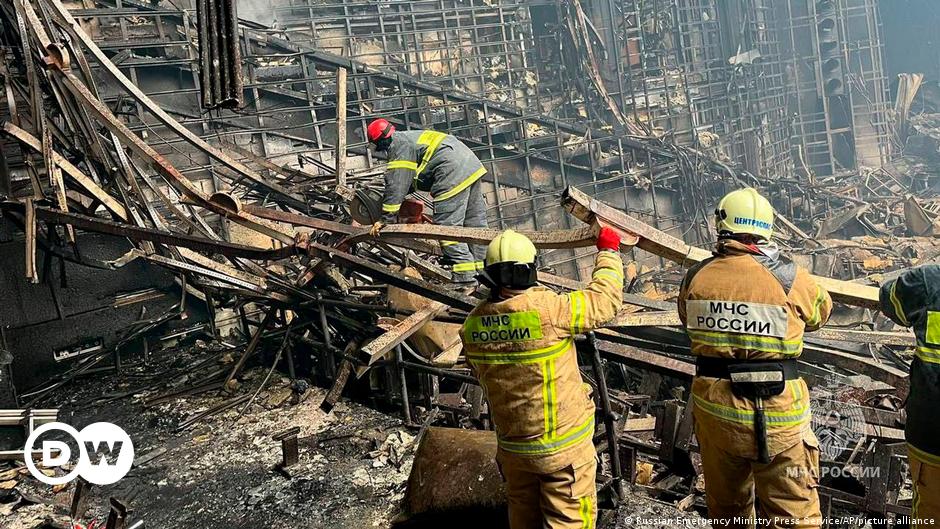
[ad_1]
Moscow witnessed one of its deadliest terror attacks in decades on Friday, when gunmen stormed a concert hall, killing at least 133 people and injuring more than 100.
Shortly after the attack, the Islamic State Khorasan Province (ISIS-K) claimed responsibility in a brief statement released through the affiliated news agency Amaq, disseminated on the messaging platform Telegram.
ISIS-K is known as one of the most lethal branches of the Islamic State (IS), the transnational terror group that presided over a now-defunct protostate in parts of Iraq and Syria. The terror group, ISIS-K has killed thousands in Afghanistan and Pakistan in attacks carried out since 2015.
The group derives its name from Khorasan, an ancient term for a territory roughly encompassing parts of modern-day Iran, Turkmenistan and Afghanistan, though its activities extend beyond this region. In addition to perpetrating deadly assaults in Iran, Pakistan, Tajikistan, and Uzbekistan, ISIS-K has also pursued operations targeting the United States and Europe.
Here’s what we know about the group, its activities and capabilities.
What is ISIS-K?
ISIS-K was formed in 2014 by a faction of defected Taliban and al-Qaeda members in Pakistan and Afghanistan who adopted a more violent interpretation of jihadism. In 2015, the group formally identified itself as an extension of ISIS in the Khorasan region. Like ISIS, ISIS-K adheres to the goal of establishing a transnational caliphate, a state for Muslims governed according to its own radical interpretation of Islam.
Analysts describe the connections between ISIS-K members and like-minded terror groups as fluid, with fighters and factions from al-Qaeda and the Taliban and other militias often switching allegiances to join ISIS-K.
Before the Taliban seized power in August 2021, both US and the then-government forces targeted ISIS-K in Afghanistan, killing scores of its mid- and senior-level leaders. However, the security vacuum created by the US withdrawal revitalized the group and allowed it to establish additional training camps and expand its global networks.
Taliban officials say they have tried to contain ISIS-K activities, claiming that security forces have arrested and imprisoned thousands of the group’s members. However, the Taliban’s ability to contain the group has been deemed insufficient and ineffective as the group’s attacks on ethnic and religious minorities in Afghanistan have become more frequent and deadlier.
The United Nations has repeatedly expressed concerns that groups such as al-Qaeda and ISIS-K could acquire advanced NATO weapons left behind when international troops withdrew from Afghanistan.
Recent ISIS-K activities
ISIS-K claimed a January 3 bombing that killed 95 people in Kerman, Iran. US officials said they had warned their Iranian counterpart ahead of the attack, as they say they did before the Moscow shooting.
In March, US intelligence officials indicated that ISIS-K had an active presence in Russia — with plans to orchestrate attacks in Moscow. Russia’s FSB security service claimed that it prevented an armed attack by ISIS-K on a synagogue in the Kaluga region near Moscow on March 7.
Russian airstrikes on behalf of President Bashar al-Assad on IS positions changed the course of Syria’s civil war. Many ISIS leaders have since condemned Putin as a leader who has the blood of Muslims on his hands. ISIS-K propaganda also refers to the history of Soviet intervention in Afghanistan.
ISIS-K seeks to perpetrate terror attacks elsewhere in Europe, as well. German police have arrested several ISIS-K supporters in recent years. In March, two suspected IS supporters were arrested in the German state of North Rhine-Westphalia and accused of planning to attack the Swedish parliament. The same week, the police in the Netherlands also arrested two people, a man from Tajikistan and his wife, on similar terrorism-linked suspicions.
ISIS-K leaders have vowed to launch attacks on Sweden, Netherlands, and Denmark following Quran burnings in those countries.
[ad_2]
Source link







